A frontman is the most important member of any band and often become the spokesman for the group. While every member plays a key role in the success, frontmen are the voice of the band. Even in the worst band, having a dynamic frontman can make the difference in popularity. This has been proven by such bands as the Sex Pistols and the Ramones. As I said in my piece about the top ten guitarists, I’m only stating my opinion. This list is for band members and not solo artists such as Elton John, Iggy Pop, or David Bowie. So without further ado, here are my top ten frontmen:
Number Ten: Chris Robinson. Hailing from Georgia, Chris Robinson grew up with the Faces and the Rolling Stones as mentors. With the swagger of Rod Stewart, his band, The Black Crowes, burst onto the scene in 1989 with their debut, Shake Your Money Maker. The record was a breath of fresh air as grunge was taking over the airwaves. The stripped down music on the record yielded such classics as “Twice As Hard,” “She Talks to Angels,” “Jealous Again” and the Otis Redding classic, “Hard to Handle.” Robison’s stage presence was quickly compared to Mick Jagger as he strutted like a rooster. With brother Rich on guitar, the band had a bluesy feel which also drew comparisons to the Stones. Unaffected by the critics, Robinson forged on as the band released their sophomore effort, The Southern Harmony and Musical Companion, which hit the number one spot on Billboard and spawned the hits “Sting Me” and “Remedy.” The band’s next release, Amorica, was quick to please critics, but with the grunge movement in full swing, the record only sold 500,000 copies. While the group would release three more records, their popularity was in question, and they disbanded in 2002 only to reform in 2005, having released three albums. Now considered classic rock, they have been unable to capture the spark of their earlier work. Whether with the Crowes or as a solo act, Robison continues to perform to the delight of fans.
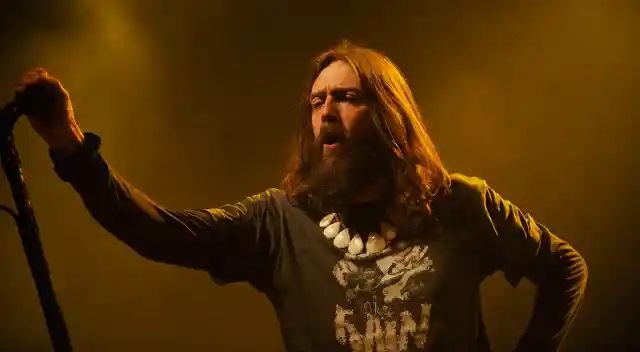
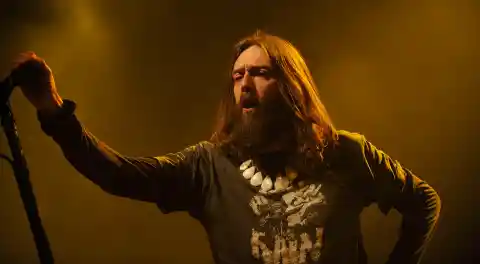
Number Nine: Ann Wilson. Ann Wilson fronted the Seattle band Heart and proved that girls can rock as hard as the boys. After recording their debut, Dreamboat Annie, they would continue to enjoy success for thirty years and counting. With sister Nancy on guitar, the band would release three more critical and commercially successful albums in the 1970s. Nancy created some of the most infectious riffs ever such as “Crazy on You,” “Barracuda,” and “Magic Man.” However, it was Ann’s incredible voice that was the cornerstone to the band’s success as they helped define music in the ’70s. Heavily influenced by Led Zeppelin, they would often pay tribute to the legendary band with live covers of “Rock and Roll,” “Stairway to Heaven,” and “Battle of Evermore.” During the ’80s, they adopted a more pop rock groove and had such hits as “These Dreams,” “What About Love” and “If Looks Could Kill.” The band was relatively quiet during the ’90s, but came back in the 21st century with a vengeance. To date, Ann and company have released three records as Heart since 2001. While Ann is a little older, her voice remains one of the most powerful in music today. In 2013 Heart was inducted into the Rock and Roll Hall of Fame.
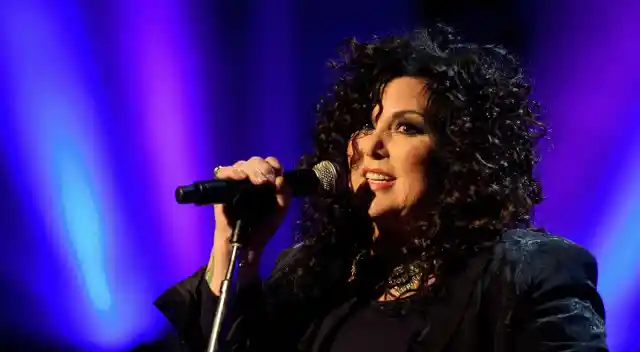
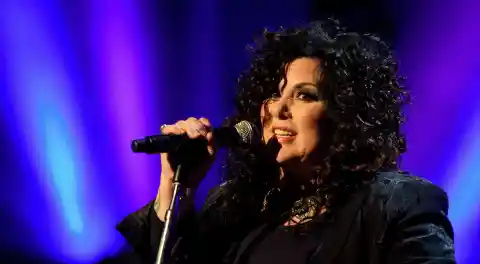
Number Eight: Bono. Frontman Bono has been delighting audiences for over three decades and is showing no signs of slowing down anytime soon. As a member of U2, his unique vocals have made the band legends in their own time. Rick Rubin once said that attending a U2 concert was like a religious experience. Formed while in high school, the band is never afraid to expand on their musical abilities. While the band’s early work was considered “new wave,” the Dublin-based group never fit into the genre, and with the release of The Unforgettable Fire, they proved the critics wrong. In 1991, U2 changed direction as they adopted a more electronic groove. Bono adopted several stage personas including “The Fly,” “The Mirrorball Man” and “The Devil.” Subsequent albums carried over this new sound, but in 2000, they got back to the basics on All That You Can’t Leave Behind. The band has collaborated with such artists as Frank Sinatra, Johnny Cash, Bob Dylan and Tina Turner. Bono’s incredible voice was featured with an array of notable artists including Ray Charles, Tony Bennett, Carl Perkins, and Rhiannon. Much more than a rockstar, Bono also lends his celebrity to such causes as the AIDS pandemic in Africa. To date, he and his band has received 22 Grammy awards, and in ’05, the band was inducted into the Rock and Roll Hall of Fame.
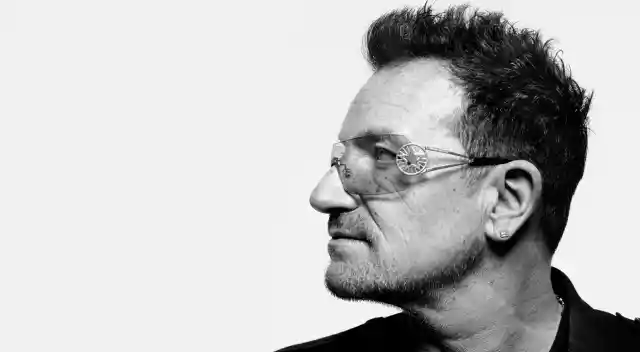
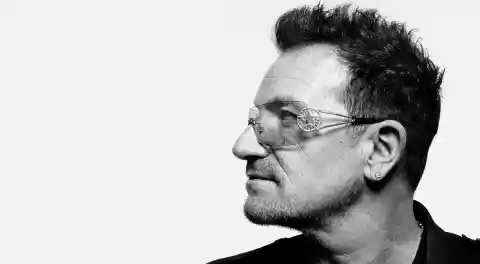
Number Seven: Perry Farrell. Perry Farrell has fronted Jane’s Addiction since 1985. While the band has only released four studio albums, they were credited as the first alternative rock band. Their debut, Jane’s Addiction was recorded live and featured the seminal track “Jane Says,” which the group re-recorded for the major label debut, Nothing’s Shocking. The disc was praised by critics and fans alike, but sales of the record only clocked in at 200,000. The band’s second outing was Ritual de lo Habitual, featuring two “hits,” “Been Caught Stealing” and “Stop,” but even though they were gaining momentum, the band called it quits in 1991. JA went out with a bang as Farrell formed Lollapalooza as a farewell show. The festival has hosted such notable acts as Nirvana, Smashing Pumpkins, Ice-T and Nine Inch Nails. Unlike previous festivals such as Woodstock, Lollapalooza travels around the States and Canada. In 1992, Farrell started a new band. Porno for Pyros released their self-titled debut in ’93 which spawned the hit, “Pets.” The second and last record, Good God’s Urge, failed to find an audience and the band broke up. Following a couple of solo projects including a compilation disc, Rev and the conceptual project, Satellite Party, Farrell reformed Jane’s Addiction and released Strays in 2003 and The Great Escape Artist in 2011.


Number Six: Jim Morrison. Although he died at 27 in 1971, Jim Morrison aka the Lizard King has still been creeping into nightmares for over five decades. Originally a poet, Morrison was an unlikely rock star until he met keyboardist Ray Manzarek, who encouraged the bashful film student to try. The Doors formed in 1965, and unlike the emerging freewheeling hippy movement, they were dark and gloomy. Songwriting was credited to Jim and Robbie Krieger. In ’66 the newly formed group were ready to find an audience and did so at the Whiskey in LA. Each night brought a new and exciting show as Morrison would improv during the sets. This would become a trademark for the Doors. Their first release was a smash right out of the gate. The Doors’ first single, “Light My Fire,” spent three weeks at number one. While the single was pop radio friendly, the rest of the album was ominous as tracks such as “The End” and “Break on Through.” Jim loved the attention and all the perks of being a rock star. His voice was not great by any stretch, but his lyrics were deep and introspective as he tackled topics that had never been dealt with in pop music. And his boyish good looks were his ticket to becoming a rock god as he oozed sexuality on stage and through his music. His influence was very apparent during the grunge scene as bands such as Pearl Jam and Nirvana wrote from a dark place. Although he’s been dead longer than he was alive, his music still remains at the top of many playlists, and in 1993, Eddie Vedder inducted the Doors into the Rock and Roll Hall of Fame.
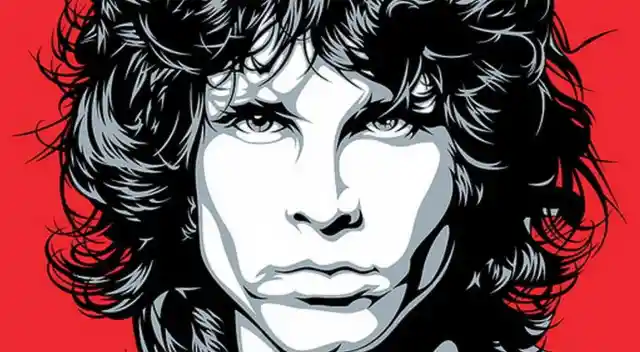
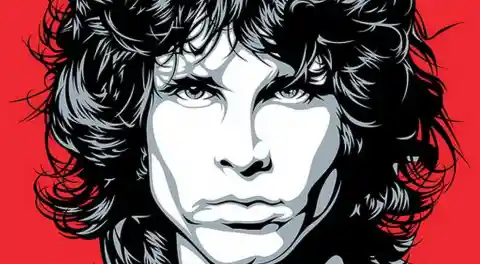
Number Five: Roger Daltrey. As a founding member of the Who, Roger Daltrey played a critical role in 1960s as well as 1970s music. While Pete Townsend wrote most of the band’s music and lyrics, it was Daltrey’s powerful voice that brought the songs to fruition. Though, the Who’s early work was barebones in contrast to their latter work, they enjoyed hits as “I Can’t Explain” and “Anyway, Anyhow, Anywhere.” However, it was the song “My Generation” that connected with the emerging counter culture and put the band on the Rock and Roll map. Arguably, the Who recorded the first concept album, Tommy. And when casting began for the film based on the record in 1975, Daltrey got the nod to play the lead role for which he won a Golden Globe. With his long golden locks and stunning good looks, he looked the part as a rock god. On stage the band was explosive as Roger would whip his mic 10 feet in the air and catch it with ease. Considered by many to be the band’s swan song, Who’s Next, featured such memorable tracks as “Won’t Get Fooled Again,” “Bargain,” “The Song is Over” and the seminal track “Baba O ‘Riley.” Never one to rest on his laurels, he began his solo career in 1973 with the release of Daltrey. While the record was a hit in Europe, it failed to chart in the States. Since then, he has released seven solo projects and has appeared on recordings by Meat Loaf, Barry Gibb, Joe Strummer and Barbra Streisand. Roger Daltrey is a songwriter, singer, performer, actor and icon who has received countless awards including induction into the Rock and Roll Hall of Fame in 1990.
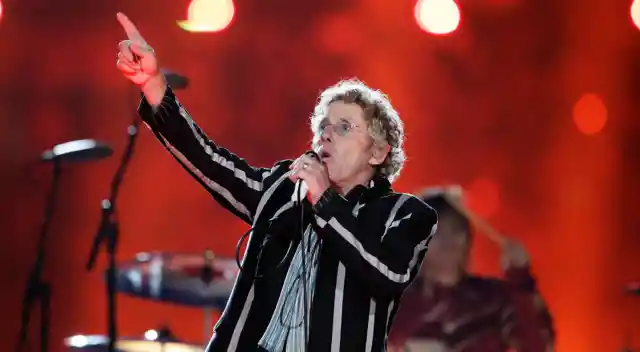
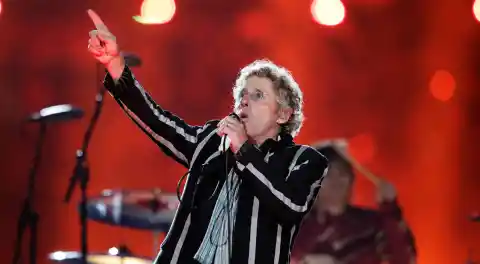
Number Four: Steven Tyler. Having lead the band Aerosmith since 1970, Steven Tyler has carved out a legacy as one of the most dynamic frontmen in the history of rock. Aerosmith is one of the only bands to have hit records in all five decades since the ’70s. Tyler along with guitarist Joe Perry, have penned nine number one hits and 22 top twenty singles on Billboard. Heavily influenced by the blues, their debut contained the Rufus Thomas classic “Walkin’ the Dog” as well as bluesy originals like “Mama Kin,” “Movin’ Out” and “Make It.” Ironically, the only hit from the 1973 self-titled debut was the power ballad “Dream On” which has become a staple in classic rock. Steven is the preeminent frontman. Whip thin, he oozed sexuality and always had style as he strutted across the stage with his signature scarf-draped mic stand. Throughout the ’70s the quintet put out monster albums such as Toys in the Attic, Rocks and Draw the Line. However, cocaine, heroin and alcohol were becoming more important to the band than the music, and in 1979, Perry left to start his own group. Now alone, Tyler tried to keep the remaining members on his side and released the band’s dismal album, Rock In a Hard Place, but it was clear that his band had lost its spark. After a long addiction to heroin, Tyler entered treatment and emerged clean and sober in 1987, after which the rest of the band followed suit. Since sobriety, Tyler and company have released no less than seven albums. Tyler, now 66, still has the swagger as he started with in the ’70s. In 2001, Aerosmith was inducted into the Rock and Roll Hall of Fame, and the band still continues to tour arenas worldwide.


Number Three: Robert Plant. Robert Plant first came to the public eye in the late ’60s as a member of one of the biggest bands ever, Led Zeppelin. But long before the spotlight was on him, he was a member of The Crawling King Snakes which would prove to be pivotal as it put him in touch with John Bonham. Plant, like most aspiring musicians from England, was influenced by blues artists from America. In 1968 Jimmy Page was searching for a lead singer for the Yardbirds and after meeting Plant, he offered the gig to him on the spot. Collaborations between Page and Plant gave us some of the most memorable moments in rock history. With John Bonham on drums and session player John Paul Jones on bass, the band conquered the world with a mix of blues, folk and straight-ahead rock. Throughout the ’70s, the band released some of the most prominent records of all time. As a live act, they would often jam out songs 10 to 15 minutes beyond the originals as Plant would riff off Page and vice-versa. Robert Plant, like Roger Daltrey, had a golden mane, devastating good looks and incredible stage presence. Often performing in shirts that would show off his chest and arms, he became a rock god, and the band’s hotel stays while touring are legendary. In 1980, Bonham died after a night of hard partying, leaving the rest of the members no choice but to retire. Despite retirement, Plant has had an amazing solo career releasing ten studio albums. In 1984, he joined Jimmy Page and Jeff Beck in the super group the Honeydrippers who found success with such singles as “Sea of Love” and “Rockin’ at Midnight.” Plant would reunite with Page again on the 1994 project Unleaded which sparked a tour. Seemingly joined at the hip, the duo would release another album. No Quarter featured reworked versions of Zeppelin classics. To date, Jimmy, Jones and Plant received the Grammy Lifetime Achievement Award, and in 1995 Led Zeppelin was finally inducted into the Rock and Roll Hall of Fame.
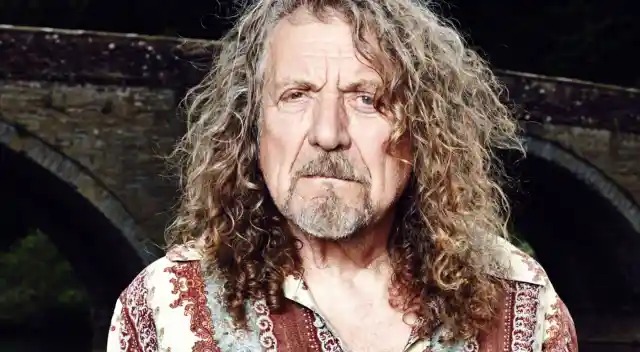
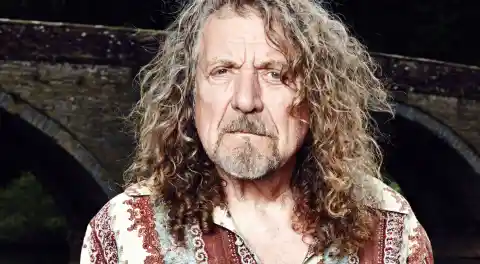
Number Two: Mick Jagger. After fifty years in the spotlight, Mick Jagger still remains the preeminent frontman in rock. As a member of one of the biggest bands in the world, Jagger and company can still fill stadiums to capacity. And he, along with his writing partner, Keith Richards, have produced some of the most popular songs ever recorded. Unlike the Beatles, the Stones were dangerous, wild and mischievous. Their first album, The Rolling Stones, only featured one Jagger/Richards original, “Tell Me,” and while it failed to chart in the US, it enjoyed a twelve-week run at the top spot in the UK. The second American release, 12 X 5, broke through in the States and featured more original material than its predecessor. However, hit single “Time Is on My Side” was written by Norman Meade. The group followed up with The Rolling Stones, Now! coveted the number 5 spot in America. Though the band was still relying on blues covers, they scored a hit with the original “Heart of Stone.” Jagger and the Stones would continue their successful run all the way through the ’80s and have sold 250 million records worldwide. Time hasn’t changed Jagger’s popularity and is still considered to be a rock god. His onstage persona is still one of sexuality, vigor and vitality as he has invented iconic moves to be copied by frontmen to follow. Now, 71, Jagger still has the moves and the grooves of a twenty year old. Mick Jagger and the Stones have several awards under their belts such as induction into the Rock and Roll Hałl of Fame, UK Music Hall of Fame, Songwriters Hall of Fame, three Grammy Awards, Lifetime Achievement Grammy, two NME awards and in 2003, Mick was knighted by the Queen of England.
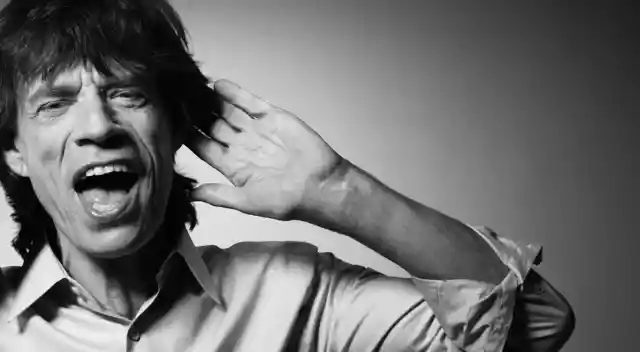
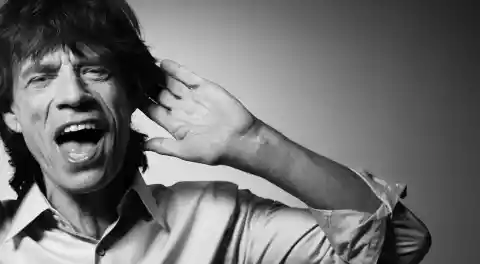
Number One: Freddie Mercury. As the frontman of Queen, Freddie Mercury was much more than a singer. His early persona was androgynous, theatrical and over the top. Though Queen’s early work was a mix of glam, punk and straight up rock, with Freddie at the helm, they would push the boundaries of popular music. As a performer, Mercury would encourage audience participation. His flamboyant style was embraced and celebrated by fans, critics and even his contemporaries such as David Bowie who called Freddie courageous. While Queen’s first three albums found critical success, they were having a difficult time unloading albums. This would change with A Night at the Opera. They charted with “You’re My Best Friend,” but “Bohemian Rhapsody” would catch the world’s attention. With its operatic interlude, the song was twice as long as anything on pop radio and is still hailed as one of the best songs ever recorded. The follow-up, A Day at the Races, received more critical and commercial success with tracks such as, “Tie Your Mother Down” and “Somebody to Love.” By the time they got to News of the World, Queen was given a license to kill, and the seminal track “We Will Rock You” has been chanted at sporting events for decades. Jazz found the band in transition as they adopted a pop-friendly and more accessible sound. Although he never officially came out as gay or bi, there were hints such as cutting off his hair, growing a mustache and adopting a leatherman look. These rumors were confirmed as Freddie died in 1991 at 45 of AIDS-related complications. Several tributes would follow, including The Freddie Mercury Tribute Concert for AIDS Awareness in 1992. Queen and Freddie have received a plethora of awards including, induction into the Rock and Roll Hall of Fame in 2001, Songwriters Hall of Fame in 2003 and the UK Music Hall of Fame in 2004.
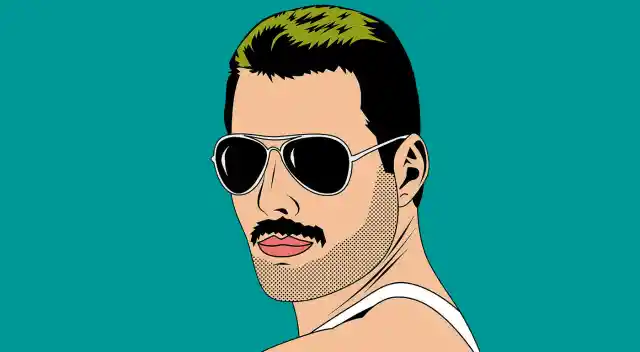

Honorable Mentions: Chris Cornell, Ronnie James Dio, Ray Davies, Dave Grohl, Bon Scott, Eddie Vedder, Ronnie Van Zant, Bruce Dickinson, Joe Strummer, Morrissey (with The Smiths), Liam Gallagher, Jarvis Cocker, Henry Rollins, Lou Reed (with The Velvet Underground), Joan Jett (with The Blackhearts), Thom Yorke, Robert Smith, Lemmy, Frank Black, Paul Weller, Debbie Harry, Michael Stipe, Ian Brown, Tom Petty, Karen O, Jack White, Marc Bolan, Patti Smith (with The Patti Smith Band) and Johnny Rotten.